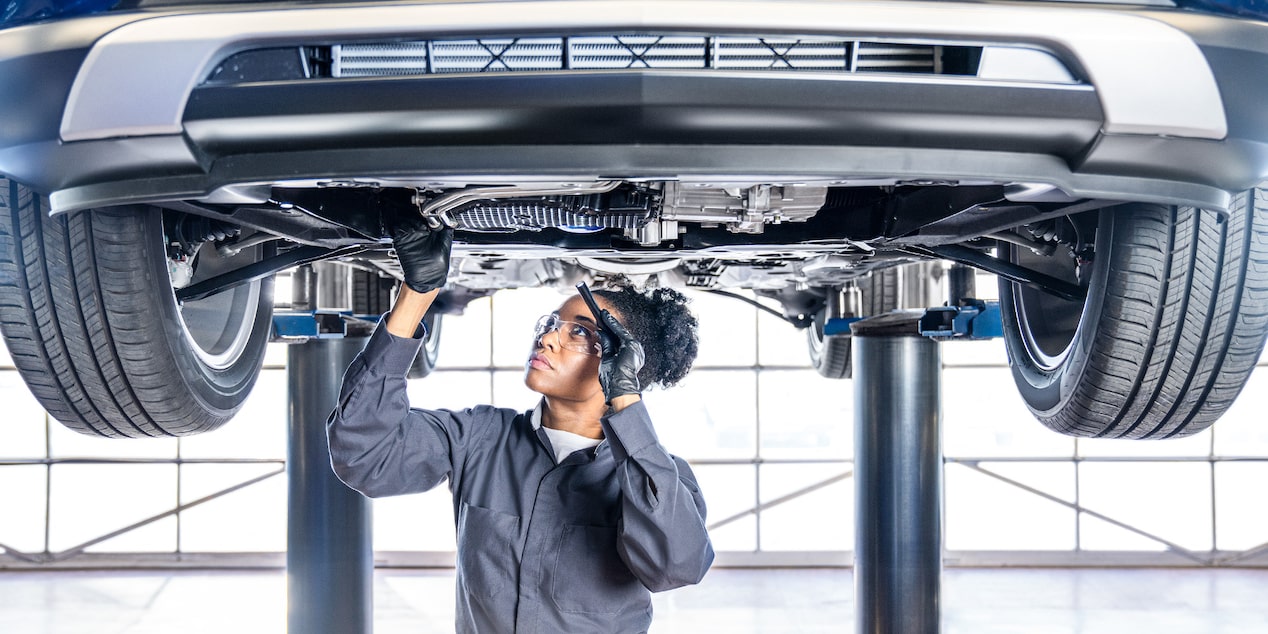All Categories
Featured
[/image]
Brakes are arguably the most crucial safety and security attribute of any kind of automobile. Without trusted brakes, even the most effective car can become a danger on the road.
- The Significance of Normal Brake Inspections. Brakes undergo continual deterioration with every usage, whether you're driving at high speeds on the highway or travelling with city roads. In time, brake pads, blades, and various other components use down, which can impact stopping efficiency. Without regular evaluations, you may not notice the steady reduction in efficiency up until it's as well late.
Regular brake assessments permit you to capture concerns early, guaranteeing that your brakes stay responsive, reputable, and secure. Timely inspections can additionally save you cash by resolving small problems prior to they come to be pricey repair services.
- Typical Indications That Your Brakes Required Attention. While routine brake inspections are very important, there are some indication you can watch out for to recognize when it's time to schedule a check-up:
Squeaking or Grinding Appears: Shrill squeaks or grinding noises when applying the brakes are typically indicators that your brake pads are put on out and need replacement. Resonance or Pulsation: If you feel resonances in the steering wheel or the brake pedal, it might indicate deformed blades, which may require resurfacing or replacing. Soft or Spongy Brake Pedal: If the brake pedal feels uncommonly soft or squishy, there might be air in the brake lines or an issue with the master cyndrical tube. Pulling away: If your auto draws to one side while braking, this might be brought on by unequal brake pad wear or a concern with the brake fluid. Raised Quiting Range: If it takes longer to stop than usual, it may show that the brake pads are used, the fluid is low, or the blades are harmed. If you discover any one of these symptoms, it's finest to have your brakes examined right away.

- Trick Components Checked During Brake Inspections. During a brake examination, a service technician will certainly check several important parts of the stopping system to ensure whatever is working appropriately. Here are the crucial elements involved:
Brake Pads: One of the most usual factor for bad braking efficiency is worn-out brake pads. Evaluating the thickness of the pads is a priority during every evaluation. Brake Rotors: Blades should be smooth and devoid of grooves or splits. Any type of substantial damages to the blades might result in compromised stopping performance and unequal pad wear. Brake Fluid: Low or polluted brake fluid can impair stopping efficiency. The specialist will certainly check the liquid levels and quality and change it if required. Brake Lines and Hose pipes: Brake lines need to be without leaks or cracks. Any type of damages to the lines can cause loss of brake fluid, leading to brake failing. Brake Calipers: The calipers use pressure to the brake pads. They must be checked for indications of wear or leaks to ensure they are working appropriately. Regularly examining these elements helps keep your brake system in peak problem, permitting you to stop your car safely and efficiently.
- Exactly how Commonly Should You Have Your Brakes Examined? The basic recommendation is to have your brakes evaluated at least when a year or every 12,000 miles, depending on your driving habits. However, specific driving problems may require even more constant examinations:
Heavy Traffic: If you commonly drive in stop-and-go traffic, your brake pads will certainly wear down faster. Hill Driving: Driving on steep roads needs more constant braking, which can create your brakes to wear quicker. Towing or Hauling Heavy Loads: If you frequently lug heavy tons, your brakes will experience much more tension and require even more regular inspections. If you observe any of the caution signs mentioned previously, don't wait for the following scheduled examination-- have your brakes checked instantly.
- The Repercussions of Disregarding Brake Inspections. Disregarding normal brake examinations can lead to major consequences. A falling short brake system could lead to reduced stopping power, which increases your danger of crashes. Overlooking brake upkeep can also result in more pricey repair work. If you delay replacing worn brake pads, the damages can prolong to the rotors, leading to the demand for rotor substitute, which is a much extra pricey repair work.
In the worst instance, driving with harmed brakes can bring about finish brake failing, placing you and other vehicle drivers in jeopardy. Routine brake assessments are a small financial investment that can save your life and avoid costly repair services.
- Final Thought: Remain Safe with Regimen Brake Inspections. Brakes are not something you intend to take possibilities with. A reliable stopping system is crucial for risk-free driving, and routine brake inspections are a straightforward way to guarantee that your car stops when you need it most. By staying on top of brake maintenance, looking for warning signs, and having your brakes inspected at the advised periods, you'll secure both your automobile and your security.
Don't wait until your brakes start to fail-- schedule regular brake inspections and maintain your vehicle in optimal problem for many years ahead.
Latest Posts
Grab Special Auto Repair Deals in Chicago at Montclare Auto Repair
Learn How to Save Big on Car Maintenance with Montclare Auto Repair’s Limited-Time Deals
Unlock WyHy Federal Credit Union – Key Advantages for Your Money Goals
More
Latest Posts
Grab Special Auto Repair Deals in Chicago at Montclare Auto Repair
Learn How to Save Big on Car Maintenance with Montclare Auto Repair’s Limited-Time Deals
Unlock WyHy Federal Credit Union – Key Advantages for Your Money Goals
[1].jpg)